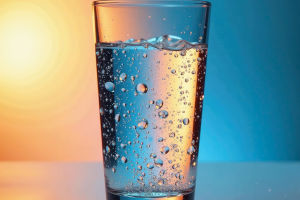We all want to enjoy fresh fruits safely, but there's a lot of confusion about the best way to clean them. Should we use just water, saltwater, or baking soda?
Let's explore together what experts like the FAO (Food and Agriculture Organization) and FDA (Food and Drug Administration) recommend and why.
Understanding pesticide residues on fruits
Many fruits may have pesticide residues on their skin, which raises food safety concerns. These pesticides are designed to protect crops but can remain on produce after harvest. The types of pesticides vary widely, including fungicides, insecticides, and herbicides. While residues are usually low and regulated, removing them as much as possible is a smart choice for our health.
What do the experts say?
The FAO and FDA both agree that washing fruits thoroughly under running water is one of the simplest and most effective ways to reduce pesticide residues and remove dirt or bacteria. Neither organization officially recommends soaking fruits in saltwater or baking soda solutions as a necessary step, but some studies suggest mild benefits.
How effective are saltwater and baking soda?
Research shows that baking soda solution (around 1%) can help break down some pesticide residues better than plain water, especially on fruits like apples with waxy skins. Saltwater can also help remove surface dirt and some residues, but its effect on pesticides is less clear. However, soaking fruits too long or using high concentrations may affect texture or taste.
Practical washing tips for us
We recommend rinsing fruits thoroughly under cold running water for at least 20-30 seconds. Using a soft brush for firmer fruits like apples or potatoes helps clean surfaces. If you want to try baking soda, dissolve about one teaspoon in two cups of water and soak fruits for 12-15 minutes before rinsing well. Avoid using soap or detergents, as they are not safe for consumption.
Washing differences by fruit type
Fruits with thick skins, like oranges or melons, often need less concern since we peel them before eating. But for berries or leafy greens, gentle rinsing is essential as they are more delicate and harder to clean thoroughly. Organic fruits may still carry residues, so washing remains important regardless of farming method.
Expert advice for peace of mind
Dr. Anna Patel, a food safety specialist, points out: "The best approach is washing fruits under running water. Baking soda can be an option for extra care, but it's not mandatory. Avoid homemade chemical mixtures that can leave harmful residues." She also stresses the importance of buying from trusted sources and storing fruits properly.
How do you wash your fruits?
We'd love to hear your habits! Do you use saltwater or baking soda? Have you noticed a difference? Sharing our experiences can help us all eat safer and enjoy fruits worry-free.


